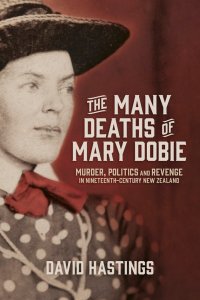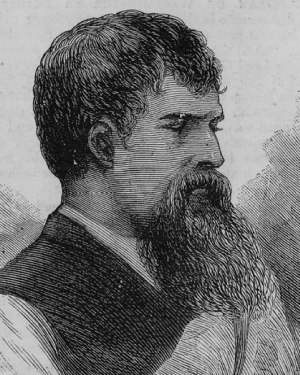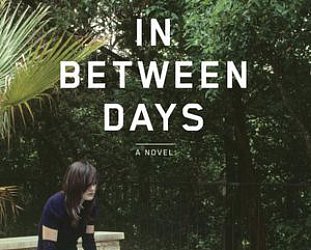Graham Reid | | 2 min read

As with many compelling stories – from Truman Capote's In Cold Blood through film-noir – this one begins with a murder. And from it, both backwards and forwards, the narrative unfolds with compelling pace and attention to detail.
For this was not just any murder.
The killing of the Mary Dobie of the title occurred at the crossroads of cultures in New Zealand in the 19th century and at a place at the junction of post-Waitangi conflict between Maori and Pakeha.
Characters here around the wider orbit of the murder – which took place near Opunake in 1880 – include Te Whiti (that problematic prophet of peace) and local Pakeha with varying degrees of empathy for Maori whose lands were being gradually (and sometimes abruptly) taken from them.
This is a true story – subtitled Murder, Politics and Revenge in Nineteenth-Century New Zealand – which former journalist and historian Hastings tells with clarity and pace in the manner of Capote's much vaunted “non-fiction novel”.
Without saying as much, Hastings suggests the spread of gossip and rumour after the murder of 26-year old Mary to be comparable with that of Facebook and Twitter today.
In the early absence of a clear culprit who had slit her throat on a coastal pathway, the tongues started clattering and then when a killer was identified the newspapers – of which there were many, both regional and national – went into often racist hyperdrive.
Mary Dobie is a fascinating victim: an intellectually curious woman for whom class and racial boundaries seemed there to be ignored (this perhaps the privilege of her birth and upbringing in England), she came from a family with an impressive lineage (Tennyson in there) and what brought her to New Zealand (and the voyage itself) are just as interesting as what happened after her arrival.
 As on the boat bringing
her, while in the country she engaged with people across all spheres
of society, and was an accomplished sketch artist so left an
interesting visual record of her experiences, among them sketches of Te Whiti (pictured) whose sermons at Parihaka she attended.
As on the boat bringing
her, while in the country she engaged with people across all spheres
of society, and was an accomplished sketch artist so left an
interesting visual record of her experiences, among them sketches of Te Whiti (pictured) whose sermons at Parihaka she attended.
Then one afternoon she encountered a young Maori man on a pathway and . . .
Well, who can really say what happened in those terrifying minutes.
Hastings makes some interesting, educated guesses of motive based on the accounts of those who spoke with the killer, who was abject in his repentance but seemed stoically resigned to his fate.
The tragic event resonated around the district and across the nation, and it is no coincidence that the following year Te Whiti's open stronghold at Parihaka was stormed by government troops.
The ripples from Mary's murder went far and wide.
This is an assiduously researched book with Hastings providing not just an account of the events but – in highly readable prose – dealing with the issues of race, land, colonial and Maori fears, and much more with equanimity.
New Zealand history is well served by Hastings who uses the murder as a pivot to explore that distant time which can also feel remarkably close.
This is the kind of book which – after devouring hungrily – you would unequivocally recommend, especially to teenagers and young adults because it makes a dark part of history come alive . . . and explores race relations in way which throws current flashpoints into a longer perspective.
It makes sense of a historic events which could otherwise seem senseless without the depth of insight and understand this writer brings.
The Many Deaths of Mary Dobie by David Hastings, Auckland University Press, $40
For futher information see here.





post a comment